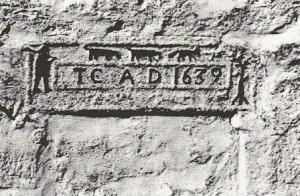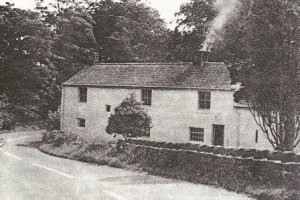Timothy Cragg was born the second day of the tenth month, 1657 in Wyersdale, England. Some would say Timothy’s story is typical of the time in which he lived: he grew up in a home where he hated his stepfather; he was conscripted into the military, forced to fight for the King; he married and had eleven children, three who died. He was faithful to his God and his church. He struggled against the lusts of his flesh.
Yet, Timothy felt he had lived a life where “…no man’s lot was like mine, nor ever a man’s trot the steps that I trod”. Looking back over 350 years later, there is something extraordinary about his living, sharing vicariously his intimate thoughts, his hopes and fears, his joys and sorrows.
Timothy was great grandfather to David Cragg. It is remarkable that these Cragg men chronicled their lives. After all, they lived in a time when only 60% of men could read; much less for those who were poor farmers. The simple pleasure of putting pen to paper, indeed, was a luxury to many.
The Cragg line can be traced back to circa 1600, less than 50 years after the death of King Henry VIII. Even then, the Craggs’ were readers and writers.
Timothy’s father died when he “was about nine years of age or something more.” He hated his stepfather. Timothy says he was “desperately bent against (his mother’s) marriage, for he who was her husband, was a sort of rough man…”
As an adult, Timothy served in the military, married, had children, and struggled to live a life of peace. He especially struggled in his faith, trying to find peace with God. He would not find it in the Church of England into which he was raised. He converted to Quakerism, ironically following after his “rough” stepfather.
One of Timothy’s most fascinating stories surrounds his conscription into King James II’s Army, fighting for King and country in the Monmouth uprising. Timothy was forced to swear his allegiance to the King, to fight for His Majesty, yet Timothy’s heart was for the enemy, the Duke of Monmouth. It grieved Timothy deeply, not only in having to take the oath of allegiance, but to “hear the poor man was taken and his army routed.” In hind sight, Timothy probably made the right choice. The alternative – supporting the Duke openly – would have shortened his lifespan considerably through “The Bloody Assizes.”
There’s lots more to come of Timothy Cragg’s life. For now, enjoy his introduction…
The Life of Timothy Cragg – 1657-1724
“I was born at the Chapel house in Wyersdale, and was the son of Thomas and Jennet Cragg, on the 2nd day of the 10th month 1657. My parents were of the Protestant Religion and I was educated in the same by them. My great grandfather, John Cragg came out of some part of Cumberland and was called a clerk being one that did the office of a Priest according as it was practiced at that day and time. My mother’s maiden name was Townson of the Townson’s of Morehead who came from Greenbank. My father died when I was about nine years of age or something more.”



11 comments for “Diary of Timothy Cragg: 1657 – 1724”